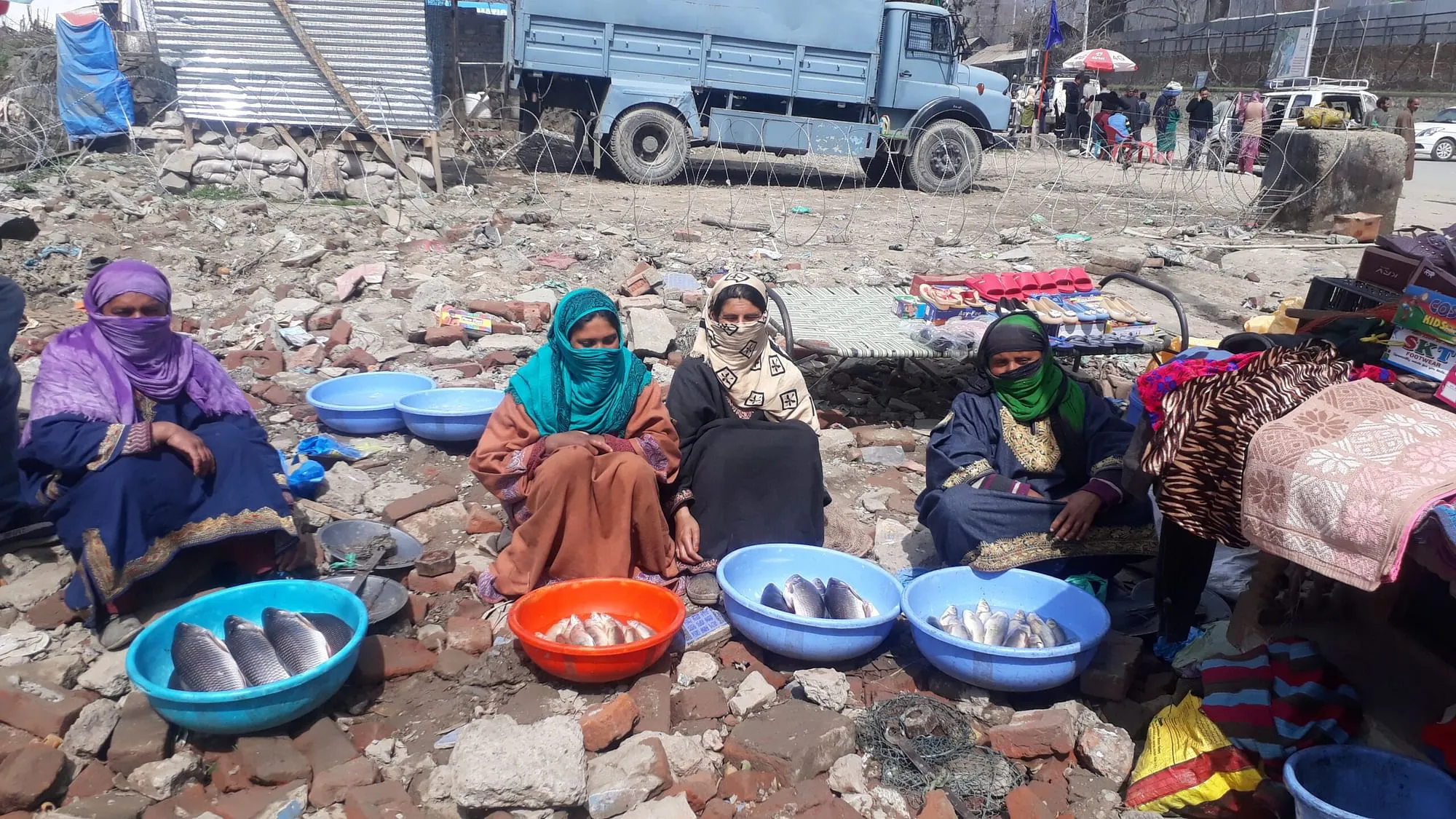Dressed in traditional Pherans with floral motifs embroidered all over, the women fisherwomen of Kandizal locality of Awantipora every morning carry large plastic bowls full of fish on their heads and make their way to a nearby market.
They sit on the roadside opposite the Awantipora Police Station to sell their merchandise.
In a raspy voice, Jawahar, one of the middle-aged fisherwomen continuously shouts out to customers while Meema and two others are haggling with buyers amid a cacophony of sounds.
For last many years, the fisherwomen of the area have been selling fresh catch in the market to scrape a living.
“It is our ancestral business, my mother used to sell fish. After I got married, I noticed that my mother-in-law was doing it in my in-laws’ house. Now it has been passed on to me,” said Jawahar.
The fishermen and fisherwomen community of Kashmir rarely marry outside their community.
The Kandizal locality comprising around 100 households is inhabited by the socially and economically-weaker community whose occupation is fishing.
While the women sell fish in different markets in and around Awantipora town, men, equipped with nets and lines and metal hooks go to catch the fish from River Jhelum.
“They start at sunup and return in the evening. Next day we go to market to sell the catch,” said Jawahar.
She said that on an average she sells 6 to 8 kg fish, which fetches her profit of something between Rs 300 to Rs 500.
“We are hardly able to make ends meet out of this small amount,” Jawahar said.
Meema, who sells her catch next to Jawahar, said that there was only one government employee in their entire community.
“The government has always ignored our community. Our children are jobless. Even the road leading to our locality is dotted with potholes and no one listens to us,” said Meema.
The peak fishing season lasts for 5 to 6 months and the community goes without work for the rest of months, particularly during the winters as it is not possible to fish due to the ice-cold waters and frosty weather conditions.
Before nineties, the fishermen would fish till late in the evenings but now return homes with their lines and nets soon after the sundown.
“They are not able to return with good catch as they work for only a few hours,” said a wiry fisherwoman, who declined to be named.
She said that due to the poor catches and long seasonal pauses, many fishermen started extracting sand from the rivers for contractors.
“But the ban imposed by the government on the extraction of sand has left them jobless,” she said.






